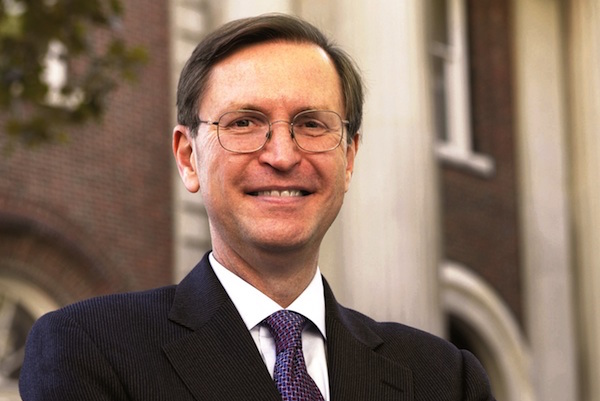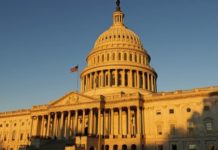
By Christopher Condon
Former chief White House economist Glenn Hubbard said the U.S. may be headed into a depression unless the government takes drastic action to shower small businesses with cash and replace demand lost by the economy’s sudden stop.
With everything from neighborhood restaurants to sports stadiums closing in an effort to contain the coronavirus, the economy faces the threat of a “demand doom loop” that could lead to an economic contraction akin to that suffered in the 1930s, according to Hubbard.
“I am fearful of that if we don’t do the right policy,” said Hubbard, who was chairman of the White House’s Council of Economic Advisers under President George W. Bush and is now dean emeritus of Columbia University’s Graduate School of Business. “If you shut down an economy, you need basically to replace private business demand.”
In an interview with Bloomberg News, Hubbard said such a plan would serve the country better than sending every American a check for $1,000, as the Trump administration is considering. Helping working people keep their jobs would be a far better outcome, he said.
“If you keep people employed, you don’t really need the checks, and if you don’t keep people employed you’re increasing unemployment expenses, maybe you’re jumping them into Medicaid programs,” he said.
Stimulus Programs
Hubbard said he’s been talking up his plan among lawmakers in Washington. It comes just as Congress is scrambling to offer a substantive stimulus program to combat the crippling impact of the coronavirus pandemic.
Republican senators Marco Rubio of Florida and Susan Collins of Maine on Wednesday proposed a $300 billion emergency relief package for small businesses that has some of the flavor of Hubbard’s idea.
Under their plan, small businesses could obtain government-guaranteed loans from banks that would be forgiven after a six-to-eight-week period provided the companies met certain conditions, including retaining staff.
“Small businesses in this country will not be able to survive unless there is an extraordinary assistance,” Rubio, chairman of the Senate Committee on Small Business and Entrepreneurship, told reporters.
So far those efforts have failed to stop a massive sell-off on Wall Street. The S&P 500 Index of U.S. stocks has plummeted almost 30% from its Feb. 19 record. A rush for cash by investors has forced the Federal Reserve, which already cut interest rates to near zero, to roll out emergency lending facilities to keep the flow of credit moving.
‘Doom Loop’
“People think the markets may be crazy, but the markets may be pricing in a doom loop,” Hubbard said. “A doom loop is a depression.”
His idea is aimed primarily at aiding service-oriented companies who face a loss of almost all their revenue and may not survive until the crisis passes.
Hubbard roughly calculated that such a program covering all U.S. companies — more than he’s proposing — might cost $1 trillion if it covered 80% of lost revenue for three months and gross domestic product dropped by 25% in that quarter.
“Is it expensive? Yes, but I don’t think it’s crazy,” he said. “I don’t think policy makers should think that doing nothing for businesses is a zero cost. It’s just going to show up elsewhere.”






